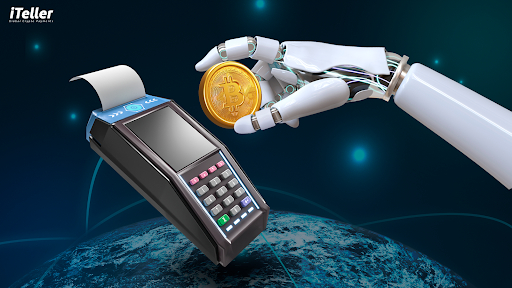With increasing digitization, there is a greater need for quick transfer of wealth. While the current payments infrastructure can keep up with the increasing demand for throughput, going through intermediaries is a significant roadblock.
Cross-border payments in fiat currency, in particular, are still highly cumbersome. Banks charge hefty transaction fees for payments to other countries, and the settlement can take several days. It also requires a lot of paperwork, which can be difficult and time-consuming.
The reason for such a lengthy and costly process is the need for security that, in traditional finance, is dependent on relying on trusted third parties. We need a more robust, secure, and trustless approach to this.
Crypto Payments As A Viable Solution
Cryptocurrencies have emerged as a viable solution to this problem. Cryptocurrency allows for fast and secure peer-to-peer transactions across borders with minimal transaction fees.
Blockchain’s distributed ledger technology (DLT) reduces the risk of double-spending and fraud, providing a secure and trustless payment infrastructure.
Also, using smart contracts allows for automatic and instant settlement of payments.
What Makes Crypto Payments Revolutionary
A survey by Mastercard revealed that 4 out of 10 people are willing to use digital assets (cryptocurrencies) to pay for products and services.
So, what makes crypto an attractive proposition for remittances?
Programmability of Currency
Programmability refers to the ability of smart contracts to automate payments based on predetermined conditions. This eliminates the need for manual intervention, resulting in faster and cheaper transactions.
Conventional fiat currencies are not programmable. Meaning that, for example, if you wanted to send money to someone overseas, it would have to be done manually, taking time and incurring transaction fees. This certainly can be automated, but then parties would have to depend on a third party to enforce the agreement.
Cryptocurrencies, on the other hand, have the ability to be programmed to follow transaction instructions automatically. This helps make payments more secure, as well as improving transparency and traceability.
Reliability and Availability
The flow of money never stops. But traditional banks have operating hours and business days. We need a payment method that works 24/7. With cryptocurrency, payment remittances can be sent at any time from anywhere in the world.
Cryptocurrency transactions are also immutable. This means that when a transaction is made, the details of it cannot be changed. This provides extra security, as well as improves traceability and auditability.
Taking this a step further, cryptocurrency ATMs like iTeller ATM are popping up in multiple locations so that people can get crypto with cash, just like how they withdraw regular money from an ATM. Currently, iTeller ATMs are operating across 100 locations in Australia, London, and Dubai.
No More Double-Spending
Double spending is the result of successfully spending some money more than once. It’s a type of fraud that occurs when someone spends the same unit of currency twice.
The problem with double spending is that it undermines the trust that is essential to any financial system. If people could spend their money twice, then banks and other financial institutions would quickly go bankrupt.
This is why traditional financial systems rely on trusted third parties to verify transactions. These intermediaries act as gatekeepers, ensuring that only legitimate transactions are processed. This adds time and cost to the overall process.
Cryptocurrencies do not require the use of intermediaries, as they are based on distributed ledger technology (DLT). This eliminates the need for trust and helps reduce transaction costs and times significantly.
Conclusion
Cryptocurrencies and blockchain technology are revolutionizing the way we send money. By providing a secure, trustless, and speedy payment infrastructure, cryptocurrencies allow for fast and secure remittances with minimal transaction fees.
Moreover, with reduced time to finality, increased traceability, and improved programmability, cryptocurrencies are becoming an attractive option for individuals and businesses looking to send money overseas.
Solutions like iTeller are further accelerating the adoption of web3 by setting up kiosks and cryptocurrency ATMs across the globe where people can purchase crypto with just cash and a phone number.









